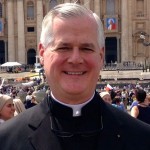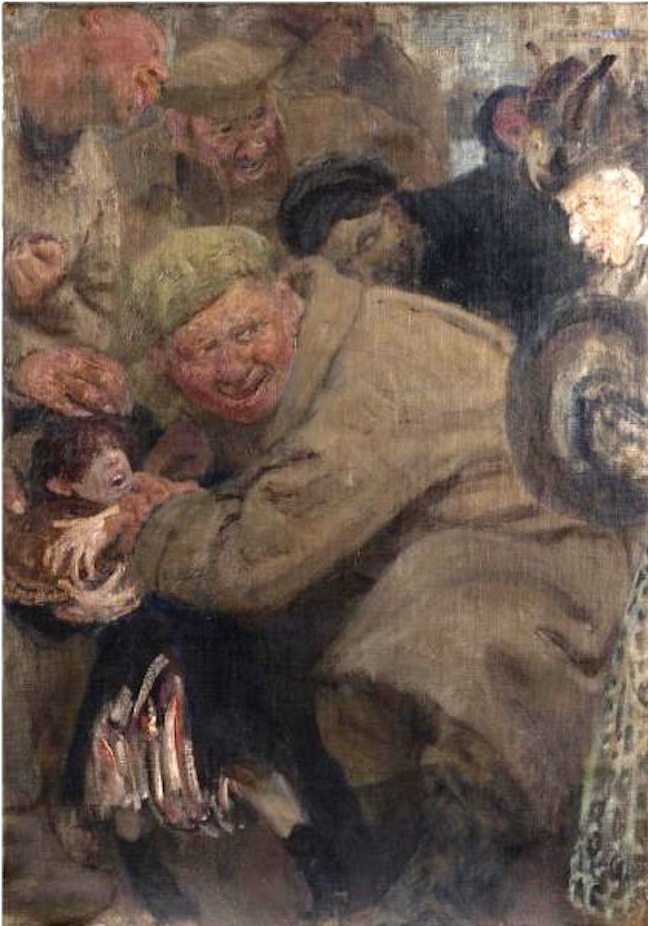
Fr. Gerald E. Murray
The Rev. Gerald E. Murray, J.C.D. is a canon lawyer and the pastor of Holy Family Church in New York City. His new book (with Diane Montagna), Calming the Storm: Navigating the Crises Facing the Catholic Church and Society, is now available.
Pope Francis recently spoke about the Synod on Synodality with Argentine journalist Elisabetta Piqué of La Nacion. He talked specifically about his 2018 Apostolic Constitution Episcopalis Communio [EC], which established new canonical norms for the Synod of Bishops:
Ten years ago a serious reflection was undertaken, and a document was written, I signed it, with theologians with me, it was a community thing. This marked out a stage: “we have arrived so far, now something more is missing.” And we did not explicate what was missing, but little by little it became evident, and it was to explain synodality. For example, it was already something accepted by all that women could not vote. Then at the Synod for the Amazon it was asked, “Why can’t women vote? Are they second class Christians?” So, we were dealing with even more serious problems for making things more perfect.
Piqué then asked: “So now will one woman or all women vote?” Pope Francis responded: “Everyone who is a participant in the synod is going to vote. He or she who is a guest or an observer is not going to vote. Whoever participates in the synod has the right to vote. Be it a man or a woman. All, all. This word ‘all’ is key for me.”
So now lay men and women will be voting members of the Synod of Bishops, on an equal footing with the bishops. With this revamping, the Synod of Bishops has ceased to exist, and a new de facto entity has come into existence, the Synod of Bishops and Laity.
This new arrangement represents a revolution in the Church. The laity can now exercise an important function previously restricted to bishops (and by law to a few selected priests). No theological or canonical justification was offered, simply the assertion that previous rules treated women unjustly as second-class Christians. Is it an injustice that the Synod of Bishops is composed of bishops who vote on their final document?
Just as an aside, the Holy See’s official logo for the Synod of Bishops was altered last year to simply use the word Synod. The official logo for the Synod on Synodality simply reads Synod 2021- 2024. Is this the reason that the homepage of the Synod on the Synodality website nowhere uses the correct title of Synod of Bishops, except for the copyright notice in Latin (2023 Synodus Episcoporum)? Is this the reason that the home page of the Holy See website does not have a link for the Synod of Bishops, but rather for the Synod? The correct title, however, is used in the website section you are sent to when you click on Synod. Is this an oversight?
EC states: “The Synod of Bishops, which is ‘in some manner the image’ of an Ecumenical Council and reflects its ‘spirit and method,’ is composed of Bishops. Nevertheless, as also happened at the Council, certain others who are not Bishops may be summoned to the Synod Assembly; their role is determined in each case by the Roman Pontiff. In this connection, special consideration must be given to the contribution that can be offered by members of Institutes of Consecrated Life and Societies of Apostolic Life.” Religious and laity who are not in holy orders can be summoned, but they cannot exercise the same role as bishops. This has been a consistent practice until now.

Canon 346 §1 is clear on who makes up the membership of this ecclesial institution: “A synod of bishops assembled in an ordinary general session consists of members of whom the greater part are bishops elected for each session by the conferences of bishops according to the method determined by the special law of the synod; others are designated by virtue of the same law; others are appointed directly by the Roman Pontiff; to these are added some members of clerical religious institutes elected according to the norm of the same special law.” [Note: “others” means “other bishops”] The only non-bishops who can become members of the synod are clerics who are members of religious orders. Until now.
Lay men and women and religious have up to now been present at synods under various titles: “Besides the members, certain invited guests without voting rights may attend the Synod Assembly. These include Experts (Periti), who help with the redaction of documents; Auditors (Auditores), who have particular competence regarding the issues under discussion. Fraternal Delegates from Churches and Ecclesial Communities not yet in full communion with the Catholic Church. To these may be added further special guests (Invitati Speciales), chosen because of their acknowledged authority.”
Pope Francis’ announcement that “all” who are named “participants” in the upcoming Synod on Synodality will have the vote, including laymen and women, alters the nature of the Synod of Bishops. It ceases to be an exercise of episcopal collegiality and solidarity with the bishop of Rome as described in Canon 342: “The synod of bishops is a group of bishops who have been chosen from different regions of the world and meet together at fixed times to foster closer unity between the Roman Pontiff and bishops, to assist the Roman Pontiff with their counsel in the preservation and growth of faith and morals and in the observance and strengthening of ecclesiastical discipline, and to consider questions pertaining to the activity of the Church in the world.”
In short, the Synod of Bishops had been a meeting in which selected shepherds of the Church gather together with the chief shepherd to discuss and explore what best needs to be done to fulfill their divinely given mission to sanctify, teach, and govern Christ’s flock. Now, we have a totally different assembly in which lay people who are not sacramentally conformed by holy orders to Christ the High Priest will be treated in law as equal to bishops. This is plain wrong. A Christian is not second class because he’s not a bishop, or is not allowed to exercise a sacred function reserved by its nature to bishops, or to some invited priests who share with bishops in the priesthood of Jesus Christ.
This innovation must be resisted by the Church’s bishops. It conflicts with the dogmatic teaching of the Church on the nature of the sacrament of Holy Orders, in particular the nature of the episcopate.